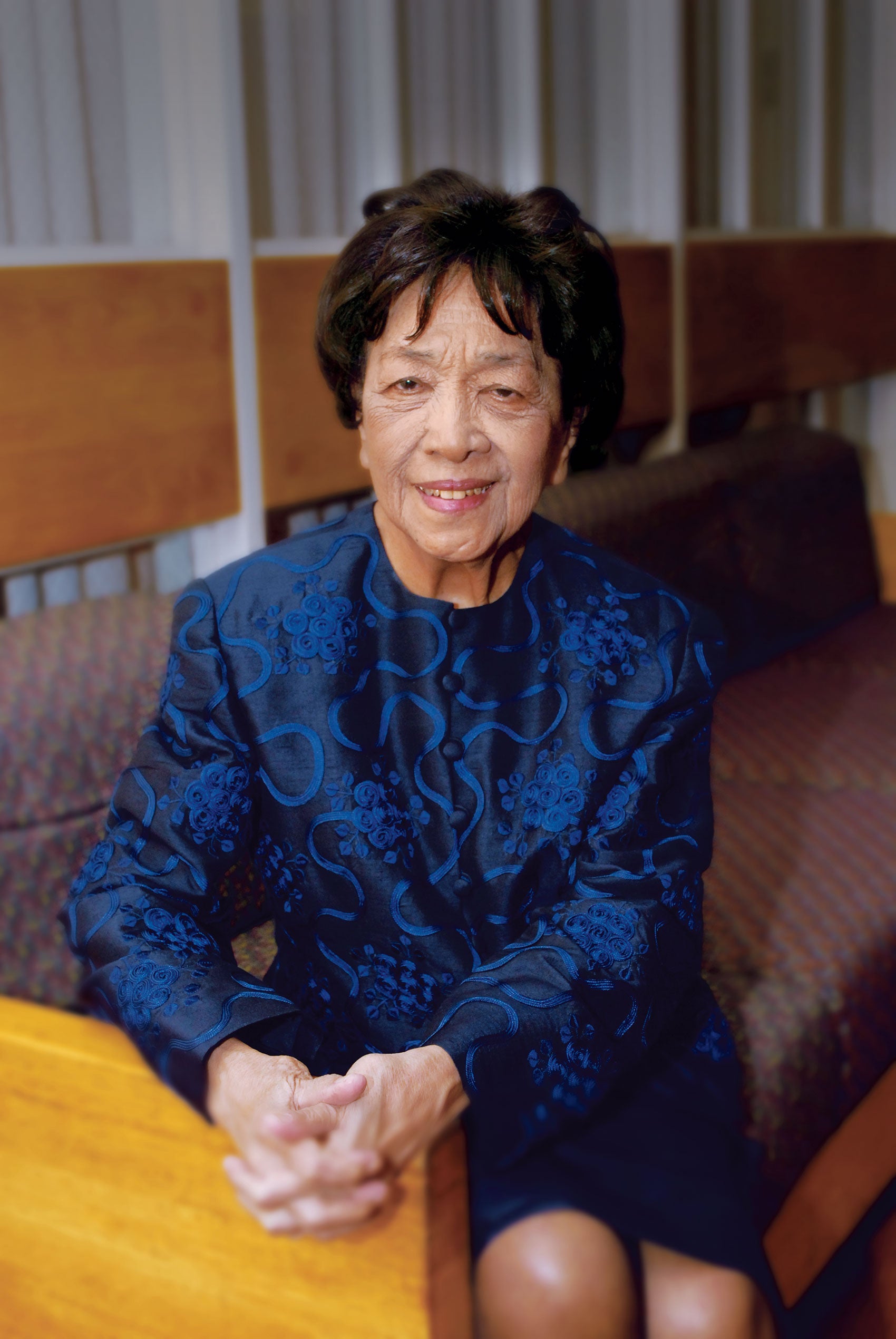Erlinda Espiritu LL.M. ’51 is on a quest
As a young girl growing up in the 1930s on a small island in the Philippines, Erlinda Arce Ignacio Espiritu LL.M. ’51 found inspiration to become a lawyer in the legends of the Knights of the Round Table.
“The knights were always defending the defenseless, and I thought, How could I do that?” said Espiritu.
Her father, a four-term governor of the province of Mindoro, and her uncles were lawyers, but Espiritu said not many women took up law. “Women were supposed to stay at home, and even if they were studying, they were studying to teach,” she said.
She persevered, and despite a world war and Japan’s occupation of her country, she became one of the few women lawyers in the Philippines in 1947, and in 1951, she was the first woman to receive a degree from HLS.
But like the quests of King Arthur’s knights, Espiritu’s path to HLS was not direct, nor was her journey without difficulty.
While studying at Manuel L. Quezon School of Law in Manila, she met her future husband. The couple planned to marry after graduation, but her father requested she first take a postgraduate year in the United States. “I told my father, if he wanted me to study abroad, I would go—provided it would be at Harvard Law School,” said Espiritu. “At that time, I knew Harvard Law accepted only male students.”
When Espiritu submitted her application, she found the Harvard Corporation had recently reversed its long-standing policy of denying women law school admission, and she was accepted.
Initially, Espiritu said, she was “at a loss” at Harvard. She had difficulty adapting to the case method and to “Americans’ slurring manner of speech.” But, she says, she had very good professors, and she credits her HLS experience with teaching her how to think.
Her fiancé, Benjamin Espiritu LL.M. ’52, enrolled at HLS halfway through her LL.M. year. They married in Cambridge, but just two years after returning to the Philippines, and two months after the birth of their son, her husband died of leukemia.
According to a 1950s profile of Espiritu, her parents thought she would not survive her bereavement. But Espiritu, a devout Catholic, now reflects, “I always think of it that the Lord has his reasons.” She returned to her parents’ home, and while they helped raise her son, she worked as corporate legal counsel for one of the biggest land developers in the Philippines.
In 1959, Espiritu—who had never before handled a criminal case—received a telegraph from the Philippines Supreme Court appointing her to represent a prisoner sentenced to death for the murder of a fellow inmate. She believed her client was innocent and recommended the case be remanded. (The opposing counsel, Frine Zaballero LL.M. ’58, concurred.) Although the court praised Espiritu’s memo, it approved the death sentence—upholding the law of no mitigating consideration for a recidivist. Undeterred, she appealed to the board of pardons, and just before his scheduled execution, her client received a commutation from the country’s president. As a result of the case, which was later made into a movie, a review of existing law was initiated.
By the early 1960s, Espiritu—at her parents’ request—left her career in Manila to manage the family’s business in Mindoro. For the next 32 years, she was president of a family-owned rural bank. She helped the poor finance small businesses, buy homes and send their children to school. She continued to do pro bono legal work until May 2006. In July, she underwent surgery for brain cancer.
The 82-year-old Espiritu returned to HLS in October for the first time in 55 years. As the guest of honor at an LL.M. dinner, she thanked Harvard for “the opportunity to learn well, not only in the matters of law but in improving the lives of our fellow men.” After her speech, many recent LL.M. graduates flocked to her table to thank her for blazing a trail for them.
